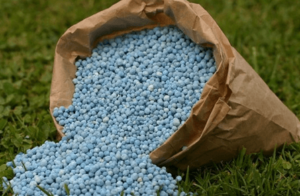ECOWAS Member States encouraged to patronise fertilizer produced within the region
 Mr Alain SY Traore, the Director- Agriculture & Rural Development of ECOWAS has encouraged Member States to patronise fertilizer produced on the continent.
Mr Alain SY Traore, the Director- Agriculture & Rural Development of ECOWAS has encouraged Member States to patronise fertilizer produced on the continent.
He said it was beneficial to buy fertilizer from member countries to contribute to the development of the continent.
Mr Troare gave the encouragement when GIZ-MOVE Project team paid a working visit to the Global Agri-Development Company Ghana Limited (GADCO), a milling rice farm in the Volta region.
The visit was to give the team, made up of public and private organizations, first-hand experience of the rice milling process and learn the business model of GADCO.
Among the team were Representatives of the Bill and Melinda Gates Foundation, Islamic Development bank, the World bank group, the Alliance for a Green Revolution for Africa, AfricaRice, GIZ, JICA, among others.
Mr Traore said the ERO’s vision was to collectively bring political and financial capital, partnerships, and expertise to achieve rice self-sufficiency in West Africa by 2030.
He said this would be achieved through profitable, resilient, and environmentally sustainable farming and milling enterprises that contributed to rural economic growth, poverty reduction, and women’s equity.
Mr Joel Tsatsu, General Manager for GADCO said the Company’s rice farm was a community-based project where the community has lease lands for the cultivation of the rice.
He said GADCO currently supports about 600 farmers in six locations in Southern Volta by making available seeds and inputs for the farmers on credit and in turn, the farmers pay back with paddy after the harvest season.
Mr Tsatsu noted that GADCO had trained field supervisors, who ensured a monitoring routine exercise and support to farmers to enable smooth application of inputs.
Mr Yvan Dorier, the Group CEO of RMG Concept, said the support to farmers became necessary as the farmers were in dire need of support amidst credit challenges.
He explained that the low rate of recovery from farmers and the risk incurred by high fertilizer prices was making it a challenge for the organization to sustain the project in 2022.
He noted that the intervention was a great push to the community and the nation as it provided jobs for the people, especially women who were actively involved in the farm.
GADCO is currently working on 1,750 hectares of the leased land developed into farming lands, roads and pump stations.
Source: GNA
